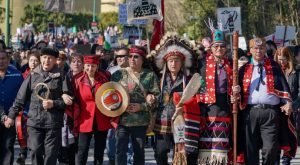Write a short story (600 – 1000 words) that describes your sense of home; write about the values and the stories that you use to connect yourself to, and to identify your sense of home.
At the start of my experience in university at UBC, I found myself stumbling on this very question. I’m not particularly familiar with my own feelings, but I found it uncomfortably easy to transition from my lifestyle of living at home, to living alone in a dorm. It made me think why my personal experience may have differed from what I expected my reaction to be. The more I grew through the first couple of weeks at UBC, the more I realized that my personal definition of home drastically differed from the same word that I was taught all my life. Home, a familiar or usual setting: congenial environment also: the focus of one’s domestic attention, webster’s dictionary, noun, meaning 3a. I came to know why I didn’t feel homesick, and it was because I didn’t feel apart from my home at all.
Many people say that home is where the heart is, and I can’t say that I disagree with this statement. What gives me a sense of home are the people that I am surrounded by. As a child, I often moved around because my parents were busy, hardworking and aiming to find an appropriate place to live. I would find myself spending a good chunk of my time with my grandparents in Taiwan and another chunk of time with my parents in America. Not once during this time did I feel out of place or homesick, and I understand now that, that’s because I never left home. Coming to UBC made me realize what was important to me, and what I should treasure. I didn’t care that I was living far away from my house because I could still talk to my parents, siblings and friends. I didn’t care that I didn’t eat the same things as I did at home, because I could still sufficiently feed myself. And I didn’t care that I couldn’t go to my old park, because there was a wonderful rose garden to sightsee when I get stressed from work.
I found the time that I had during my first year of UBC to be one of the best experiences I had because if this revelation. During my time up until that point, I always became anxious at the fact that I would leave home, but the whole fact of leaving home to go to UBC made me realize that it’s impossible for me to ever leave home. Because home, and the idea of home is fluid to me. No matter where I live, or who I live with, or what I live in, I will always be at home if I cherish the memories of my family and friends. A story my friend told me during my first year of university made me realize how far my sense of home differed from the sense of home that was taught during my time in elementary and secondary. She told me of wonderous places, of planets and worlds distant in solitude. She explained that a girl in this world found sadness that her home burnt down in a fire, and the girl grew up, but she never had a home again. I question my friend why the girl never found a home in her time growing up, and my friend explained that the girl lost her mother and brother in the fire. She explained that without a part of her family, she also lost a part of her home, that left her empty. No matter what place the girl tried to find, to live in, and to call home, none of them could be considered a home without her mother and brother.
I’m bringing up this story because my friend learned it from her mother who had a different background from the western philosophies of Canada. Throughout her life, she refused to say that she is moving home, because, to her and her mother, there was never one physical home. Home is where she takes herself and where she is with her mother. And that made me realize that my sense of home is also different. Home is where I can connect to my family and friends, no matter the distance.
McAndrew, T. Frank. “Home Is Where the Heart Is, but Where Is “Home”?” Psychology Today, https://www.psychologytoday.com/us/blog/out-the-ooze/201508/home-is-where-the-heart-is-where-is-home, Accessed 26 January 2020.
Bologna, Caroline. “What Happens To Your Mind And Body When You Feel Homesick.” Huffpost, https://www.huffingtonpost.ca/entry/what-happens-mind-body-homesick_n_5b201ebde4b09d7a3d77eee1, Access 26 January 2020.
